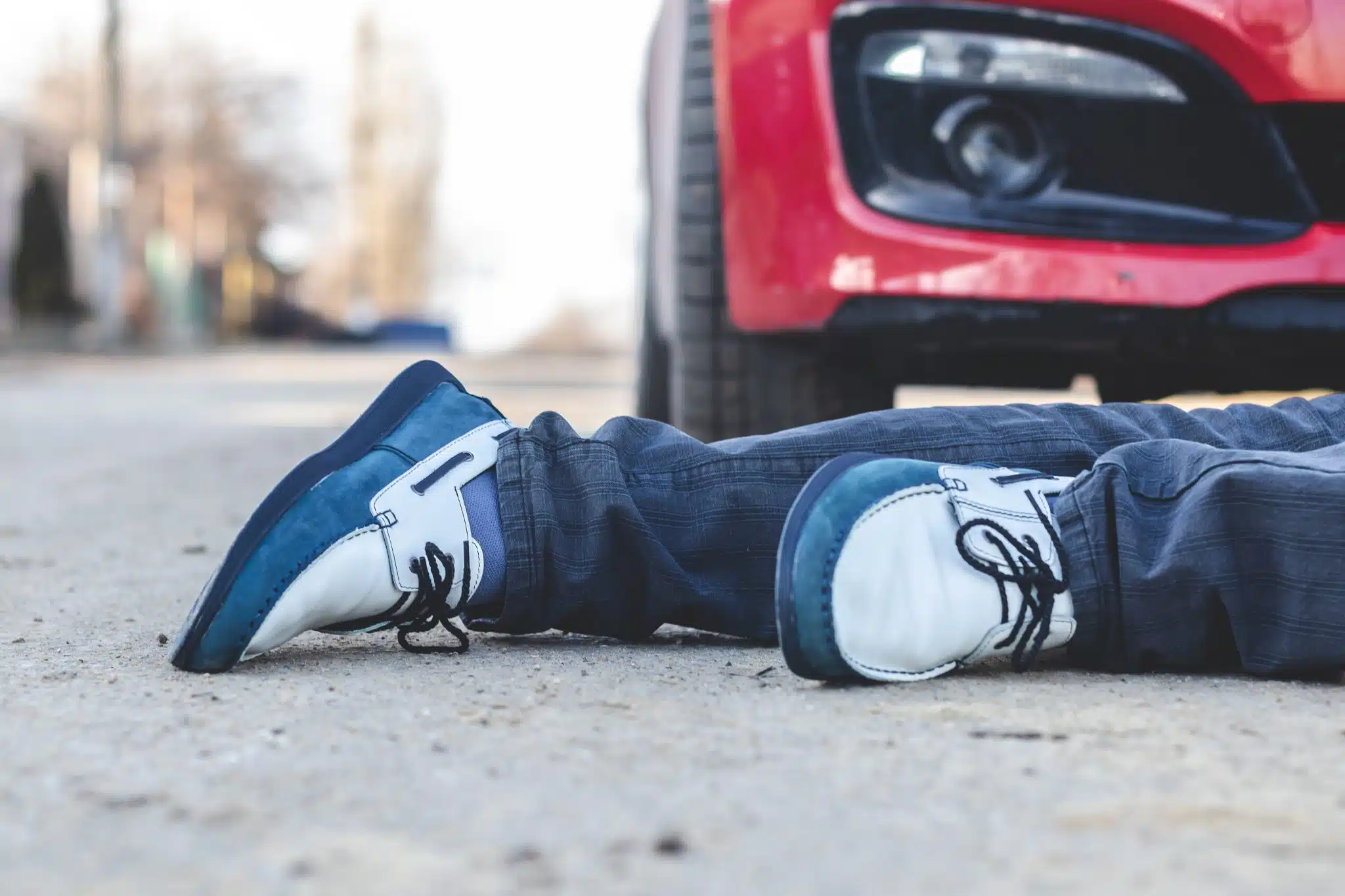
The allure of the open road, the wind in your face, and the sense of freedom that comes with riding a motorcycle is undeniable. For many enthusiasts, motorcycling isn’t just a mode of transportation; it’s a way of life.
However, this exhilarating experience comes with inherent risks that can’t be ignored. The question that often arises, especially among those considering taking up motorcycling or concerned loved ones, is: Are motorcycles worth the risk?
To answer this question, we need to examine various aspects of motorcycle riding, including the associated risks, safety measures, and the potential rewards. Let’s dive into this topic and explore what it means to be a motorcyclist in today’s world.
If you or a loved one has been injured in a motorcycle crash, reach out to a seasoned motorcycle accident lawyer near you today.
Understanding Motorcycle Riding Risks
There’s no denying that riding a motorcycle carries more risk than driving a car. Statistics from the National Highway Traffic Safety Administration (NHTSA) consistently show that motorcyclists are overrepresented in traffic fatalities. The lack of protective barriers, smaller size, and reduced stability of motorcycles contribute to this increased vulnerability.

Some key risk factors include:
- Exposure to Elements: Unlike car occupants, motorcyclists are directly exposed to the environment, including weather conditions and road hazards.
- Visibility Issues: Motorcycles are smaller and less visible than cars, making them more susceptible to being overlooked by other drivers.
- Lack of Safety Features: Motorcycles don’t have the safety features found in modern cars, such as airbags, seatbelts, or crumple zones.
- Skill Requirements: Operating a motorcycle requires more skill and physical coordination than driving a car, which can lead to accidents due to rider error.
- Road Conditions: Motorcycles are more sensitive to road conditions such as potholes, gravel, or wet surfaces.
Common Motorcycle Accidents and Injuries
Understanding the types of accidents and injuries that motorcyclists commonly face can help in assessing the risks involved:
- Collisions with Vehicles: The most frequent type of motorcycle accident involves collisions with other vehicles, often due to the driver failing to see the motorcycle or misjudging its speed and distance.
- Single-Vehicle Accidents: These can occur due to rider error, road conditions, or mechanical failures.
- Head-On Collisions: While less common, these are often fatal due to the combined speed and force of impact.
Injuries resulting from motorcycle accidents can be severe and life-altering. Some of the most common include:
- Traumatic Brain Injuries (TBI): Even with helmet use, the impact of a crash can cause serious brain injuries.
- Spinal Cord Injuries: These can result in partial or complete paralysis.
- Road Rash: Severe skin abrasions caused by sliding across the road surface.
- Fractures and Orthopedic Injuries: Broken bones and joint injuries are common in motorcycle accidents.
- Internal Injuries: The force of impact can cause damage to internal organs.
The Reality of Motorcycle Safety
While the risks are real, it’s important to note that some motorcycle accidents are preventable. Responsible riding, proper training, and the use of safety gear can significantly reduce the likelihood and severity of injuries. Here are some key factors to keep in mind:
- Rider Education and Training: Proper training is crucial for developing the skills needed to operate a motorcycle safely. Many states offer motorcycle safety courses, which can be beneficial for both new and experienced riders.
- Protective Gear: Wearing appropriate safety gear is essential. This includes:
- DOT-approved helmet
- Eye protection
- Leather or reinforced jacket and pants
- Gloves
- Boots that cover the ankles
- Defensive Riding: Anticipating potential hazards and riding defensively can help avoid many dangerous situations.
- Visibility: Wearing bright or reflective clothing and using motorcycle lights can increase visibility to other drivers.
- Motorcycle Maintenance: Regular maintenance ensures that the motorcycle is in good working condition, reducing the risk of mechanical failures.
- Avoiding High-Risk Behaviors: Refraining from speeding, riding under the influence, or riding in adverse weather conditions can significantly reduce accident risk.
The Role of Other Drivers
It’s worth noting that a significant number of motorcycle accidents are caused by other vehicles. Common scenarios include:
- Left-turn accidents: When a car turns left in front of an oncoming motorcycle.
- Lane-changing accidents: When a driver fails to check their blind spot before changing lanes.
- Rear-end collisions: Often occurring when a driver underestimates the stopping distance needed.
Educating all road users about motorcycle awareness is crucial for improving safety. Campaigns like Look Twice, Save a Life aim to remind drivers to be more vigilant in watching for motorcycles.
Legal Considerations
In the event of a motorcycle accident, understanding your legal rights and responsibilities is crucial. If you’re involved in an accident caused by another driver’s negligence, you may be entitled to compensation for:
1. Medical expenses
This category covers all costs related to the medical treatment of injuries sustained in the accident. It includes:
- Emergency room visits and ambulance fees
- Hospital stays and surgical procedures
- Doctor’s appointments and specialist consultations
- Prescription medications
- Physical therapy and rehabilitation
- Mental health counseling (if needed due to trauma from the accident)
- Medical devices or equipment (such as crutches, wheelchairs, or prosthetics)
- Future medical expenses related to ongoing treatment of accident injuries
2. Lost wages
This refers to the income you’ve lost due to being unable to work because of your injuries. It can include:
- Salary or hourly wages for missed work days
- Lost bonuses or commissions
- Reduced earning capacity if you’re unable to return to your previous job
- Future lost wages if your injuries result in long-term or permanent disability
- Loss of benefits (such as health insurance or retirement contributions)
3. Pain and suffering
This is a non-economic damage that compensates for the physical pain and emotional distress caused by the accident. It can include:
- Physical pain from injuries
- Emotional distress, such as anxiety, depression, or PTSD
- Loss of enjoyment of life (if injuries prevent you from engaging in activities you once enjoyed)
- Disfigurement or permanent disability
- Loss of consortium (compensation for the impact on your relationship with your spouse)
4. Property damage
This covers the cost of repairing or replacing your motorcycle and any other personal property damaged in the accident. It can include:
- Cost of repairing your motorcycle
- Fair market value of your motorcycle if it’s totaled
- Damaged riding gear (helmet, jacket, boots, etc.)
- Any other personal items damaged in the crash (phone, watch, etc.)
- Rental vehicle costs while your motorcycle is being repaired
It’s important to note that in some jurisdictions, comparative negligence laws may reduce your compensation if you’re found partially at fault for the accident.
The Benefits of Motorcycling
Despite the risks, motorcycling offers numerous benefits that many riders find outweigh the potential dangers:
- Fuel Efficiency: Motorcycles generally consume less fuel than cars, making them more economical and environmentally friendly.
- Maneuverability: Motorcycles can navigate through traffic more easily, potentially reducing commute times.
- Parking Convenience: Finding parking for a motorcycle is often easier and sometimes cheaper than for a car.
- Lower Maintenance Costs: Generally, motorcycles are less expensive to maintain than cars.
- Sense of Community: Many riders enjoy the camaraderie and social aspects of motorcycle culture.
- Mental Health Benefits: Riding can be a form of stress relief and provide a sense of freedom and adventure.
- Skill Development: Mastering the art of motorcycling can be a rewarding personal challenge.
Making an Informed Decision
Deciding whether motorcycles are worth the risk is a personal choice that depends on various factors:
- Your Risk Tolerance: Some individuals are naturally more risk-averse than others.
- Riding Experience and Skill Level: More experienced riders may be better equipped to handle the challenges of motorcycling.
- Local Traffic Conditions: The safety of motorcycling can vary depending on your location and typical riding environment.
- Personal Circumstances: Factors like family responsibilities or health conditions may influence your decision.
- Purpose of Riding: Whether you’re considering a motorcycle for daily commuting or occasional recreational use can affect the risk-benefit analysis.
Steps to Take If You Choose to Ride a Motorcycle
If you decide that the benefits of motorcycling outweigh the risks for you, here are some steps to enhance your safety:
- Get Proper Training: Enroll in a motorcycle safety course, even if it’s not required in your state.
- Start with a Suitable Bike: Choose a motorcycle that matches your skill level and intended use.
- Invest in Quality Gear: Don’t skimp on safety equipment. Your gear is your primary defense in an accident.
- Practice Regularly: Keep your skills sharp by riding regularly and practicing emergency maneuvers in a safe environment.
- Stay Informed: Keep up with the latest safety techniques and technologies in the motorcycling world.
- Ride Within Your Limits: Be honest about your skill level and don’t push yourself beyond your capabilities.
- Consider Additional Insurance: Look into comprehensive motorcycle insurance that covers medical payments and uninsured/underinsured motorist protection.
What to Do If You’re Involved in a Motorcycle Accident
Despite taking all precautions, accidents can still happen. If you’re involved in a motorcycle accident:
- Prioritize Safety: Move to a safe area if possible and check for injuries.
- Call Emergency Services: Report the accident and request medical assistance if needed.
- Document the Scene: Take photos and gather contact information from witnesses.
- Seek Medical Attention: Even if you feel fine, some injuries may not be immediately apparent.
- Contact a Motorcycle Accident Attorney: An experienced lawyer can help protect your rights and guide you through the legal process.
- Notify Your Insurance Company: Report the accident, but be cautious about giving detailed statements until you’ve spoken with an attorney.
- Preserve Evidence: Keep all medical records, repair estimates, and any other documents related to the accident.
The Role of Legal Representation
If you’re involved in a motorcycle accident, having skilled legal representation can be crucial. An experienced motorcycle accident attorney can:
- Investigate the accident thoroughly
- Negotiate with insurance companies on your behalf
- Ensure you receive fair compensation for your injuries and damages
- Represent you in court if necessary
- Navigate complex legal and insurance processes
At the Rothenberg Law Firm LLP, we understand the unique challenges faced by motorcyclists. Our team of experienced attorneys is dedicated to protecting the rights of motorcycle accident victims and ensuring they receive the compensation they deserve.
Are Motorcycles Worth the Risk: Final Thoughts
In the end, the question “Are motorcycles worth the risk?” doesn’t have a set answer. It’s a personal decision that requires careful consideration of the risks, benefits, and your individual circumstances.
For many riders, the joy, freedom, and sense of adventure that come with motorcycling outweigh the potential dangers. They find that with proper training, responsible riding habits, and the right safety gear, they can mitigate many of the risks associated with motorcycling.
However, it’s crucial to approach the decision with a realistic understanding of the risks involved. Motorcycling requires a commitment to safety, continuous skill development, and a heightened awareness of your surroundings at all times.
If you do choose to ride, remember that knowledge is power. Stay informed about safety practices, keep your skills sharp, and always prioritize your safety and the safety of others on the road.
Talk to a Motorcycle Accident Attorney at the Rothenberg Law Firm LLP
Should you ever need legal assistance following a motorcycle accident, know that there are personal injury lawyers who are ready to help.
At the Rothenberg Law Firm LLP, we’re committed to supporting the motorcycling community and protecting the rights of riders. Whether you’re a seasoned motorcyclist or considering taking up riding, our legal team is here to provide the legal guidance and representation you may need. Contact us today if you or someone you love was involved in a motorcycle accident.




